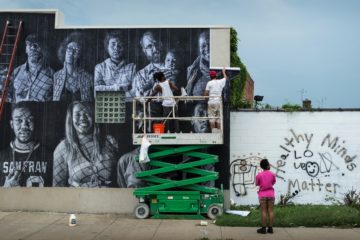Robin Kelley in The Boston Review:
 In the fall of 2015, college campuses were engulfed by fires ignited in the streets of Ferguson, Missouri. This is not to say that college students had until then been quiet in the face of police violence against black Americans. Throughout the previous year, it had often been college students who hit the streets, blocked traffic, occupied the halls of justice and malls of America, disrupted political campaign rallies, and risked arrest to protest the torture and suffocation of Eric Garner, the abuse and death of Sandra Bland, the executions of Tamir Rice, Ezell Ford, Tanisha Anderson, Walter Scott, Tony Robinson, Freddie Gray, ad infinitum.
In the fall of 2015, college campuses were engulfed by fires ignited in the streets of Ferguson, Missouri. This is not to say that college students had until then been quiet in the face of police violence against black Americans. Throughout the previous year, it had often been college students who hit the streets, blocked traffic, occupied the halls of justice and malls of America, disrupted political campaign rallies, and risked arrest to protest the torture and suffocation of Eric Garner, the abuse and death of Sandra Bland, the executions of Tamir Rice, Ezell Ford, Tanisha Anderson, Walter Scott, Tony Robinson, Freddie Gray, ad infinitum.
That the fire this time spread from the town to the campus is consistent with historical patterns. The campus revolts of the 1960s, for example, followed the Harlem and Watts rebellions, the freedom movement in the South, and the rise of militant organizations in the cities. But the size, speed, intensity, and character of recent student uprisings caught much of the country off guard. Protests against campus racism and the ethics of universities’ financial entanglements erupted on nearly ninety campuses, including Brandeis, Yale, Princeton, Brown, Harvard, Claremont McKenna, Smith, Amherst, UCLA, Oberlin, Tufts, and the University of North Carolina, both Chapel Hill and Greensboro. These demonstrations were led largely by black students, as well as coalitions made up of students of color, queer folks, undocumented immigrants, and allied whites.
More here. (Note: Throughout February, at least one post will be dedicated to Black History Month. The theme for 2023 is Black Resistance. Please send us anything you think is relevant for inclusion)
